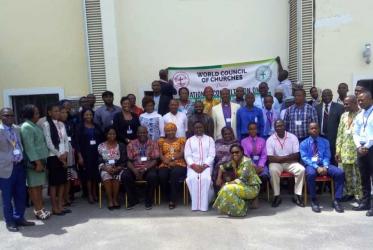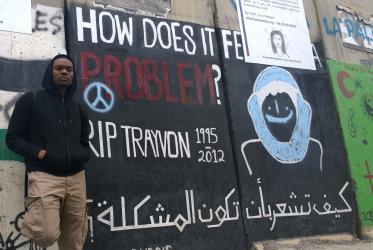Displaying 21 - 40 of 44
Konrad Raiser shares ecumenical journey of transformation
06 February 2018
WCC Executive Committee to convene in Amman
16 November 2017
New videos help congregations hasten HIV response
20 October 2016
WCC welcomes Grand Imam of Al-Azhar
01 October 2016
WCC conference explores ecological injustice in Uganda
21 April 2016
WCC Executive Committee works toward a future of peace and justice
19 November 2015
“European solidarity must be strengthened”
29 October 2015
WCC Executive Committee speaks out on migrant crises
12 June 2015











